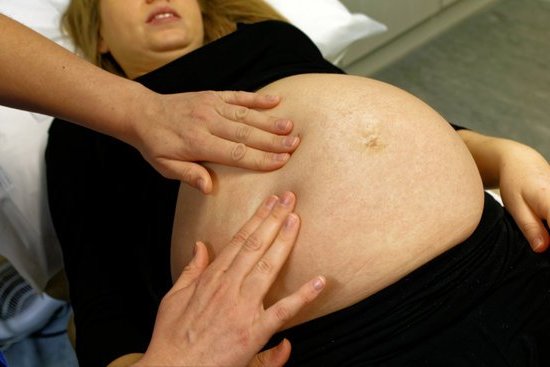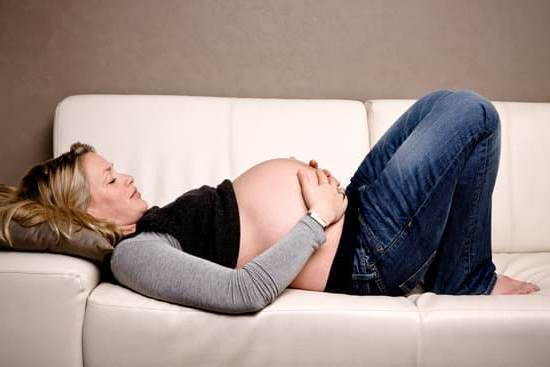Are you experiencing a 7-day late period with no pregnancy symptoms? Understanding the menstrual cycle and the potential causes of late periods can provide insight into what may be happening with your body. The average length of a normal menstrual cycle, possible pregnancy symptoms, and various factors that can cause a delayed period will be discussed in this article.
The menstrual cycle, which typically lasts around 28 days, is controlled by hormones and involves the shedding of the uterine lining if pregnancy does not occur. However, many women experience irregularities in their menstrual cycle due to various reasons such as stress, hormonal imbalances, medical conditions, or lifestyle factors.
In this article, we will explore the average length of a normal menstrual cycle and the potential causes of irregularities. Additionally, we will discuss common pregnancy symptoms and the likelihood of being pregnant if you are experiencing a 7-day late period without any typical signs of pregnancy. Understanding these factors can help provide clarity on what may be causing your late period and whether it requires further attention or professional evaluation.
Normal Menstrual Cycle
A normal menstrual cycle typically lasts between 25 to 30 days, with the average being 28 days. However, it is common for women to experience irregularities in their menstrual cycle from time to time. Irregularities can include periods that are shorter or longer than usual, as well as cycles that vary in length from month to month.
There are several potential causes of irregular menstrual cycles. One common cause is hormonal fluctuations, which can be influenced by factors such as stress, diet, and exercise. Additionally, medical conditions such as polycystic ovary syndrome (PCOS) and thyroid disorders can also contribute to irregular periods.
In some cases, a late period may cause concern for pregnancy, especially if there are no signs or symptoms present. However, it is important to note that a late period does not always indicate pregnancy. There are many other potential reasons for a delayed menstrual cycle, including stress, travel, changes in routine, or fluctuations in weight.
The absence of pregnancy symptoms despite a late period can be perplexing for many women. It is essential to recognize that there are several potential explanations for this occurrence. Regardless of the underlying cause of a late period without pregnancy symptoms, it’s crucial for individuals to seek medical attention if they have concerns about their menstrual health.
Potential Pregnancy Symptoms
It is not uncommon for women to experience a late period, even when they are not pregnant. However, the absence of pregnancy symptoms during this time can be concerning for many women. To alleviate some of these concerns, it is essential to understand potential pregnancy symptoms and the likelihood of pregnancy.
- Missed Period: A missed period or a late period is often one of the earliest signs of pregnancy. If your period is 7 days late and you have been sexually active without protection, it is important to consider the possibility of pregnancy.
- Fatigue: Feeling unusually tired or fatigued can also be a symptom of early pregnancy. This fatigue may be more pronounced than normal and unrelated to any significant changes in your daily routine.
- Nausea and Vomiting: While commonly known as morning sickness, nausea and vomiting can actually occur at any time of day for some pregnant women.
Likelihood of Pregnancy:
The likelihood of pregnancy depends on various factors such as timing of ovulation, frequency of sexual intercourse, use (or lack thereof) of contraception, and individual fertility. Even if you have been tracking your menstrual cycle carefully and believe that you had sex during a non-fertile window, there is still a possibility of pregnancy. It’s important to remember that every woman’s body works differently, and there are always exceptions to general patterns.
Understanding potential pregnancy symptoms and the likelihood of pregnancy can help ease anxiety caused by a late period with no obvious signs of pregnancy. If you are experiencing a 7 days late period with no pregnancy symptoms but are concerned about the possibility of being pregnant, it is advisable to take a home pregnancy test or consult with a healthcare professional for further evaluation.
7 Days Late Period
When a woman’s period is 7 days late, it can be concerning, especially if there are no signs of pregnancy. There are several potential reasons for a delayed menstrual cycle, and understanding these causes can provide insight into what might be happening with the body.
Hormonal Imbalance
One common reason for a late period with no pregnancy symptoms is a hormonal imbalance. Hormones play a crucial role in regulating the menstrual cycle, and any disruption in hormone levels can lead to irregularities. This imbalance can be caused by factors such as stress, changes in birth control methods, or underlying medical conditions.
Polycystic Ovary Syndrome (PCOS)
Another possible cause of a late period without pregnancy symptoms is polycystic ovary syndrome (PCOS). This condition affects the ovaries and can cause irregular periods, along with symptoms such as weight gain, acne, and excessive hair growth. PCOS is often linked to hormonal imbalances and insulin resistance, leading to disruptions in the menstrual cycle.
Thyroid Disorders
Thyroid disorders, such as hypothyroidism or hyperthyroidism, can also impact the menstrual cycle. The thyroid gland plays a key role in regulating metabolism and hormone production. When thyroid function is disrupted, it can lead to changes in the menstrual cycle, including missed or late periods. It’s essential to consider thyroid health when investigating the reasons behind a delayed period.
Overall, experiencing a 7-day late period with no pregnancy symptoms can be distressing but understanding the potential causes behind this irregularity is crucial. From hormonal imbalances to medical conditions like PCOS and thyroid disorders, there are various factors that could contribute to a delayed menstrual cycle. It’s essential to seek medical attention if this becomes a recurring issue or is accompanied by other concerning symptoms.
Medical Conditions
A late period can be a cause for concern, especially when it is accompanied by no pregnancy symptoms. In many cases, a late period with no pregnancy symptoms can be attributed to several medical conditions. One common cause is a hormonal imbalance, which can disrupt the normal menstrual cycle. Hormonal imbalance can occur due to various reasons such as stress, diet, or underlying medical conditions.
Polycystic Ovary Syndrome (PCOS) is another potential cause of a late period with no pregnancy symptoms. PCOS is a hormonal disorder that affects women of reproductive age and can lead to irregular periods, infertility, and other health issues. Women with PCOS may experience delayed or absent periods due to the imbalance of reproductive hormones in the body.
Thyroid disorders, such as hypothyroidism or hyperthyroidism, can also impact the menstrual cycle and lead to a late period with no pregnancy symptoms. The thyroid gland plays a crucial role in regulating hormone levels in the body, and an underactive or overactive thyroid can disrupt the menstrual cycle.
It is important to note that these medical conditions require proper evaluation and diagnosis by a healthcare professional. If you are experiencing a 7 days late period with no pregnancy symptoms and suspect an underlying medical condition, it is essential to seek medical attention for proper assessment and management.
| Medical Condition | Potential Impact on Menstrual Cycle |
|---|---|
| Hormonal Imbalance | Disruption of normal menstrual cycle |
| Polycystic Ovary Syndrome (PCOS) | Irregular periods, infertility |
| Thyroid Disorders | Disruption of hormone regulation affecting menstrual cycle |
Lifestyle Factors
Many women experience a delayed menstrual cycle at some point in their lives, and lifestyle factors can play a significant role in this occurrence. Stress, diet, exercise, and weight are all contributing factors that can influence the regularity of a woman’s menstrual cycle.
Stress
Experiencing high levels of stress can have a profound impact on the body, including disrupting the hormonal balance necessary for regular menstruation. When the body is under stress, it can affect the production of hormones like estrogen and progesterone, which are crucial for maintaining a regular menstrual cycle. This disruption can lead to a delay in menstruation, causing a period to be 7 days late with no pregnancy symptoms.
Diet
Nutritional imbalances or deficiencies can also affect the menstrual cycle. Inadequate intake of essential nutrients can interfere with hormone production and ovulation, potentially leading to irregular periods. Conversely, excessive consumption of certain foods or beverages, such as caffeine or alcohol, may also disrupt hormone levels and contribute to late periods.
Exercise and Weight
Physical activity and weight can also impact menstruation. Intense or excessive exercise can affect hormone levels and lead to irregular periods or missed periods. Additionally, being underweight or overweight can disrupt hormone balance, resulting in delayed menstruation. Both low body fat levels and obesity can negatively impact reproductive hormones and subsequently affect the regularity of a woman’s menstrual cycle.
It is important for women to be mindful of these lifestyle factors and their potential impact on menstrual health. Making positive changes in areas such as stress management, nutrition, physical activity, and weight management can help promote hormonal balance and support regular menstrual cycles. If concerns about delayed periods persist despite addressing these lifestyle factors, it may be necessary to seek medical attention for further evaluation.
When to Seek Medical Attention
When a woman experiences a late period, it can be a cause for concern, especially when there are no pregnancy symptoms. While it is not uncommon to have an irregular menstrual cycle from time to time due to various factors such as stress or changes in lifestyle, it is important to be aware of when a late period may require professional evaluation.
There are several signs that may indicate the need for medical attention if you are experiencing a 7 days late period with no pregnancy symptoms. It is crucial to pay attention to your body and recognize any unusual symptoms that accompany your late period. Some red flags that may warrant seeking medical advice include:
- Unexplained weight loss or gain
- Extreme fatigue or weakness
- Severe abdominal pain or pelvic discomfort
- Abnormal vaginal bleeding
- Sudden onset of acne or excessive hair growth
If you are experiencing any of these symptoms along with a late period and no signs of pregnancy, it is recommended to seek evaluation by a healthcare professional. Ignoring these signs could potentially lead to undiagnosed medical conditions that require prompt treatment.
In addition to physical symptoms, it is also important to consider the emotional impact of a late period with no pregnancy symptoms. The stress and anxiety associated with the uncertainty of the situation can take a toll on mental well-being. Seeking guidance from a healthcare provider can provide reassurance and help alleviate any concerns about the underlying cause of the delayed menstrual cycle.
Conclusion
In conclusion, experiencing a 7 days late period with no pregnancy symptoms can be a cause for concern and may prompt individuals to seek medical guidance. While it’s normal for women to have irregular menstrual cycles from time to time, it’s essential to monitor and understand your body’s natural rhythm. This includes keeping track of the length of your cycles and any changes in symptoms or regularity.
Seeking proper healthcare guidance is crucial when it comes to understanding the underlying causes of a delayed period. Whether it’s due to hormonal imbalances, medical conditions such as polycystic ovary syndrome or thyroid disorders, or lifestyle factors like stress and diet, consulting with a healthcare professional can help determine the best course of action. They can also provide necessary tests and evaluations to rule out potential issues or provide appropriate treatment if needed.
It’s important not to ignore irregularities in your menstrual cycle, as they could be indicative of an underlying health issue that needs attention. In some cases, conditions that affect the menstrual cycle can impact fertility and overall reproductive health. By acknowledging the importance of monitoring menstrual health and seeking proper healthcare guidance, individuals can take proactive steps towards maintaining their overall well-being.
Frequently Asked Questions
Can I Be Pregnant if My Period Is 7 Days Late?
Yes, it is possible to be pregnant if your period is 7 days late. A delayed period can be a sign of pregnancy, although there are other factors that can cause a late period as well.
Can You Be Pregnant With No Symptoms but Late Period?
It is possible to be pregnant with no symptoms and a late period. Some women may not experience any noticeable pregnancy symptoms in the early stages, making it challenging to determine pregnancy solely based on symptoms.
Can You Be Pregnant With No Symptoms Except Missed Period?
Yes, it is possible to be pregnant with no symptoms except for a missed period. While many women do experience symptoms such as nausea or fatigue early in pregnancy, some may have no noticeable symptoms at all aside from a late or missed period.

Welcome to my fertility blog. This is a space where I will be sharing my experiences as I navigate through the world of fertility treatments, as well as provide information and resources about fertility and pregnancy.





